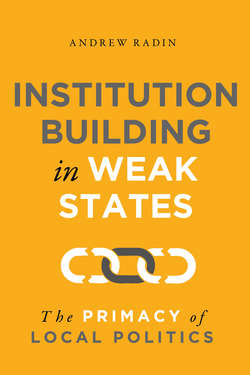Читать книгу Institution Building in Weak States - Andrew Radin - Страница 7
На сайте Литреса книга снята с продажи.
PREFACE
ОглавлениеImproving state institutions in partner countries is an important, enduring, and challenging task for the United States and the international community. Building partner capacity is a key component of US counterterrorism strategy and US policy to deter both Russia and China. Many scholars and practitioners see institution building as essential to ensuring a sustainable peace in post-conflict societies.
A key unappreciated problem with institution building is that foreign missions often propose changes to state institutions that threaten the interests of the elites and the population within the partner country. This book explores how these proposed changes can provoke opposition that can damage the prospects for reform. I show how foreign missions in the mid-2000s in Bosnia and Herzegovina, Kosovo, Timor-Leste, and Iraq repeatedly undermined their own efforts by proposing changes to state institutions that threatened core domestic interests—namely, nationalist goals and patron-client networks. Drawing from my experience working on a RAND Corporation project in 2015, I observe the same problem in Ukraine, where Western recommendations that posed the least threat to patron-client networks ultimately made the greatest improvement to defense institutions. The book concludes that foreign reformers who proposed changes to state institutions that minimize domestic opposition while still making improvements were ultimately able to achieve the greatest progress.
This book is intended for anyone aspiring to reform state institutions in another country, including students of public policy, government officials, military officers working with foreign counterparts, and international development professionals. The book’s case studies focus on reforms of central government, defense, and police institutions, but the suggestion that foreign reformers select their demands or recommendations to limit domestic opposition also applies to other state institutions. Foreign reformers are right to aspire to make partners’ state institutions more effective, accountable, and law abiding, but reformers need to be selective and patient to avoid counterproductive opposition.
